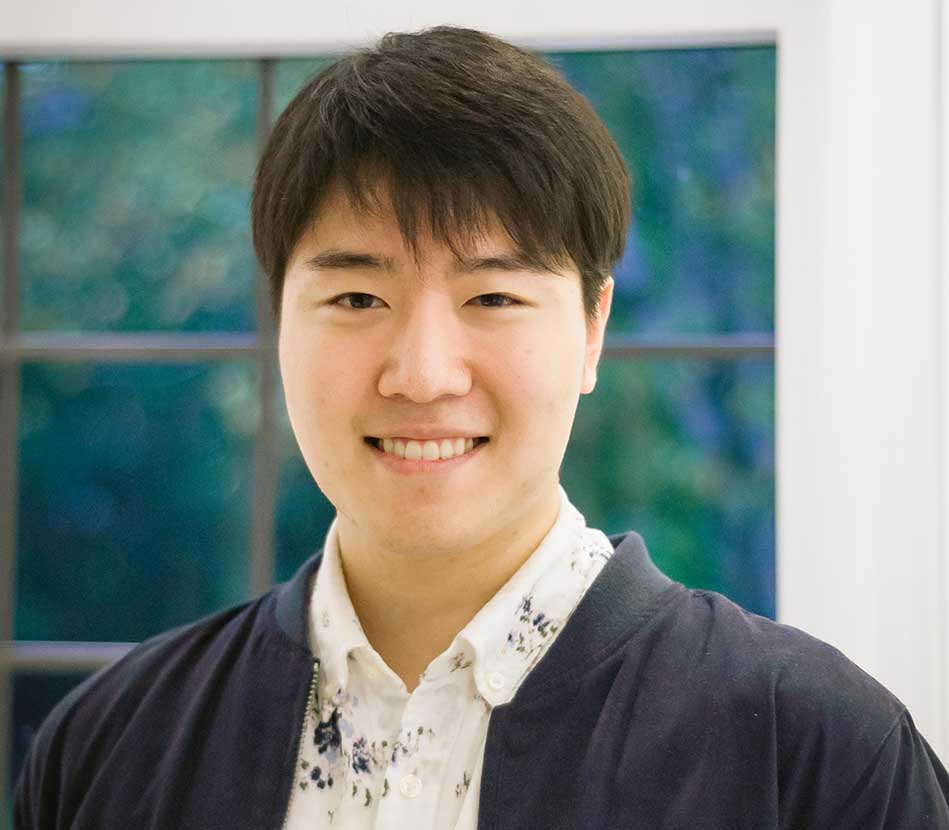Meet the Wilson Leaders: Yung Lee

In April, three accomplished students became the first recipients of the Wilson Leadership Scholar Award, a prestigious new award established to cultivate the country’s next generation of leaders.
The awards, which include $50,000 to cover education costs over two years along with admission to an elite leadership development program, recognize students who demonstrate exceptional promise and potential.
The program is among the highest value undergraduate scholarships in the country.
Health Sciences student Yung Lee has maintained a near-perfect academic average while working at the McMaster Immunology Research Centre with Charu Kaushic, and also doing clinical infectious disease research with Gordon Guyatt and Reed Siemieniuk. He is also involved in a number of on- and off-campus clubs and organizations such as McMaster Medicine and You, Music in Medicine, and even as a photo reporter for the Silhouette.
We asked Yung about himself, the Wilson Leadership Scholar Award and who he looks up to as a leader:
Hometown
I am from Richmond Hill—originally born in Seoul, South Korea.
Year/Program
Third year of Bachelor of Health Sciences
Describe yourself in a tweet
Fan of unique ideas and talents, constantly looking forward to discovering new things in life – yearning to always be a student at heart.
Why did you decide to come to Mac?
Since grade 10, with an interest in the healthcare field and biomedical research, I thought there was no better place to shape myself through my own education than at McMaster in the Bachelor of Health Sciences program. Moreover, I never enjoyed standardized testing or lecture-style learning. As a result, I wanted to be in a program in which I can learn the foundations and apply my knowledge in a problem-based setting.
Why did you apply to become a Wilson Leader?
Coming into university, I took every single opportunity that was presented to me. If I were to go back to my high school self and was presented with the opportunity to apply for this award, I would not have applied because I was timid and afraid of taking risks. However, in my first year of university, I almost never had a weekend when I wasn’t working on an application, contacting a professor, or taking chances by applying for different awards. These time-consuming and ego-bruising exercises left me with many rejections at the end of the day, but the process of putting countless hours of effort and being calloused by regrets and disappointing emails allowed me to grow stronger as a person, ready to take on the next big challenge.
When I first came across this award, I instantly thought that I would have a very slim chance of having the opportunity to be in the Wilson Leader program. However, I thought that the application and the interview process in itself would be a valuable experience, which it was– I am very thankful that I decided to step outside my comfort zone.
What does being a “leader” mean to you?
We’ve all been in many situations in which we were led by an amazing leader that made us feel enthusiastic, or by an abrasive leader that made us question our own significance. I think every leader walks this fine line of being an authority (the one that dispenses truth) and being an authoritarian (the one that abuses truth). I strive to be a leader that exudes a unique charisma and continue to modestly lead, faithfully follow, and respect the strengths and weaknesses of every person from all walks of life.
Who do you look up to as a leader, and why?
Ever since first year of university, I constantly wondered what a day in the life of a researcher would be like. Although I have been to my dad’s chemistry lab in Korea when I was younger, I was curious to know what it would be like in the field of biomedical research.
Despite having no lab experience, the first professor who welcomed me into his lab was Dr. Warren Foster. Even with minimal knowledge in obstetrics and gynecology, he appreciated my desire to learn and continued to ask me questions like, “Why do you think this result happened? What are the control groups you should use in this experiment? What are the techniques involved in this?”
As time progressed, I became more comfortable in the lab environment and was able to learn various techniques and review different literatures in the field of reproductive biology. I enjoyed every moment; I gained new knowledge from topics I would have never imagined myself learning. From watching his leadership, I learned that it is important for a leader to truly believe in others, inspire them to take more risks, and allow them to grow as a better person.
What do you hope to accomplish as a Wilson Leader?
Being part of an inaugural cohort of Wilson Leaders comes with both responsibilities and expectations. Through this program, I want to expand my academic interests, form valuable connections with leaders in various fields of healthcare, and also give back to the McMaster community.
Why should someone apply to become one of next year’s Wilson Leaders?
If you are interested in any of the following, I think you should definitely apply for the Wilson Leadership Scholar Award.
- Being part of the community of leaders from various backgrounds, who constantly push you to make you become a better person.
- Forming long-lasting, valuable connections with other students, faculty members from different universities, and national leaders.
- Discovering your strengths and weaknesses and improving them by personal coaching and mentoring.

